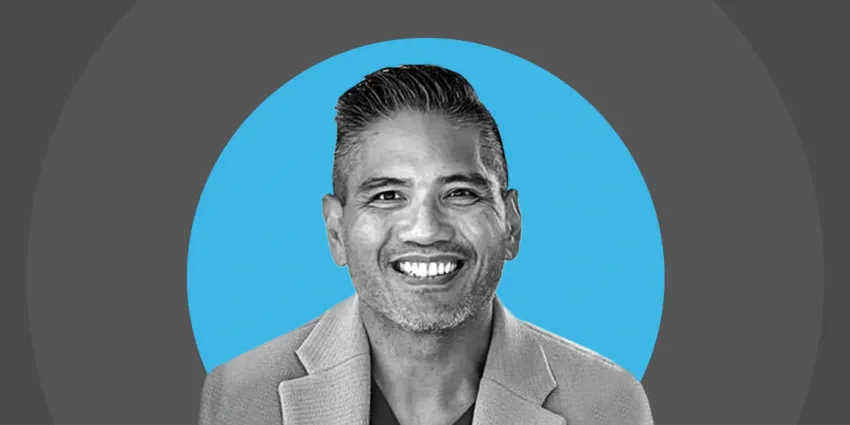



This article is part of a series about MOBE Guides and the work they do.
Name: Dennis
Before MOBE: Dennis has a bachelor’s degree in nutrition and exercise science, was a practicing chiropractor for seven years, and then became a neurophysiologist specializing in monitoring orthopedic and neurosurgeries.
Years at MOBE: 3
During my years as a neurophysiologist, I realized that many of the people who were getting orthopedic surgeries could have done things to prevent those surgeries, such as exercising or sleeping more to help their bodies heal. I wanted to help people understand that they could take control of their bodies by making small changes that would help them avoid surgery. So, when a work colleague introduced me to MOBE, it was a great fit.
Change is a mindset.
MOBE participants come to us after trying many things to improve their health and well-being. Often, by the time they get to us, they have a fixed mindset. They don’t want to try because they’ve failed in the past. As a MOBE Guide, it’s my job to rewire that thinking and help create a growth mindset—helping them realize that you can fail, get back up again, and try something else. They don’t have to feel embarrassed or feel like a failure if something doesn’t work. They need to give themselves some grace and embrace their health care journey as a journey of self-discovery.
I like to tell my participants, “Growth is not linear.” Everyone can reach their goals, but it doesn’t happen in a straight line. Personal things happen, professional things happen. You’re going to have obstacles and barriers. Pushing through those obstacles—and celebrating those wins—makes you stronger.
Small ideas can change the game.
Once people are ready to try new things, we transition to finding fresh ideas—small changes that can alter their health and well-being in a positive way. Our participants have an advantage because they have somebody who can help brainstorm ideas and keep them accountable. We discuss eating right, and how what you eat can affect your energy for exercise. Or how they can increase energy and healing by getting a bit more sleep. It can just be a half hour more of sleep or eating a few more vegetables a day.
For example, I’m working with a woman who was told she needed musculoskeletal surgery. Her goal is to lose some weight, so she can hopefully avoid the surgery. She tried weight loss many times before and was never successful—she just ended up gaining more weight. While we were coming up with ideas, she said she had a treadmill, but she used it as a clothes rack. So we started there. She cleared off the treadmill and began with a small goal: walking five minutes on the treadmill, one day a week. Today, she’s up to 20 minutes a day and she’s lost 5-6 pounds. Even better, her husband started using the treadmill, too. They have a friendly competition and they’re supporting each other.
Health and well-being changes can affect people’s professional lives, too.
When people have health and well-being challenges, it makes work more difficult. Maybe they’re not focusing or producing as much as they should. They have a negative mindset. But once we start changing that mindset, they have a different sense of purpose. They’re able to interact with their managers and employees more effectively. They have more energy at work, get more done, and feel happier at work.
In fact, I’ve had a lot of participants who have applied for promotions. After succeeding with some health goals, they’re motivated to do more. They have the energy to do it. And they have skills to manage their time, health, and well-being now. They realize starting small and building confidence can lead to bigger achievements in work or life. It’s so exciting to watch them excel.